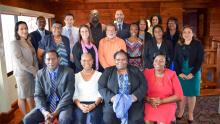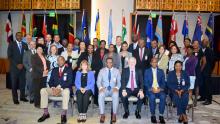Listado de noticias
Resultados de búsqueda
Showing 1 to 11 of 11 results in 1 pages.

31 de mayo de 2017 | Noticias
29 de mayo de 2017 | Comunicado de prensa
19 mayo 2017 | Discurso

19 de mayo de 2017 | Noticias
9 mayo 2017 | Infografía
9 mayo 2017 | Infografía
9 mayo 2017 | Infografía
3 mayo 2017 | Noticias
1 mayo 2017 | Noticias